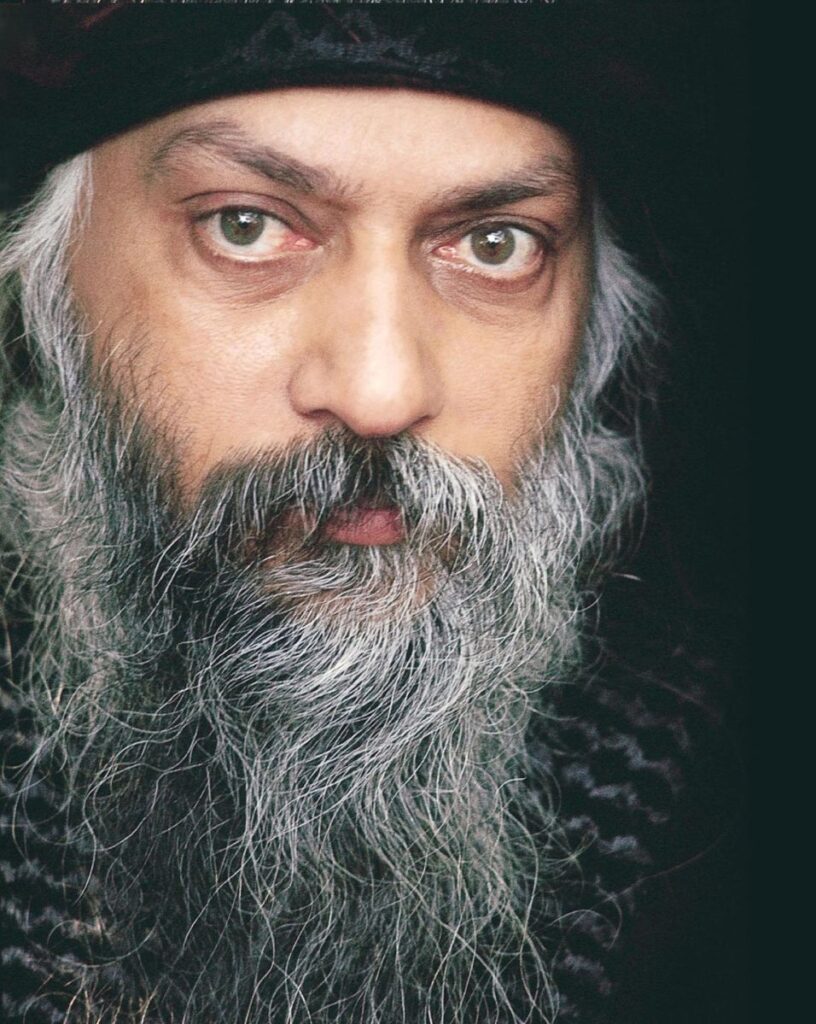I was camping in a village where two old men came to visit me. One of them was a Jaina, the other a Hindu brahmin. They were old friends and neighbours, and their debate was just as old. In fact, all debates are old because there is no end to them. Men come and go, but debates go on. Both friends had passed their sixties.
The Jaina said to me, “We come to you with a question which has been troubling us for the last fifty years. I don’t believe in God, whereas this gentleman believes in God. What do you say?”
I said to them, “You two have monopolised the whole debate between you. What is there for a third person like me to say? Since you have divided the thing between you on a fifty-fifty basis, where do I come in?” Then I asked them, “You have argued for the last half century; why couldn’t you come to a decision?”
The brahmin friend said, “I hold on to my arguments because I like them, and my friend holds on to his because he likes them. And neither of us has been able to convince the other.”
I said, “You have carried on this debate for fifty years, but do you know how long mankind has been debating over it? From time immemorial man has been arguing over it. Up to now, however, no theist has been able to convert an atheist to his point of view. Similarly no atheist has convinced a theist. And the dispute goes on unabated. It shows that each side has a half-truth with it; that is they cling to it so tenaciously. If you have one end of reality in your hands, how can you believe there is another end to it?”
I told them, “I can be of help to you only if I completely keep out of the dispute. If I get involved, all I can do is to take up one of the two positions that you hold, but it will make no difference whatsoever. So I say to you, give up arguing and try to see the other side of the coin, if there is some truth in what the other person says. You don’t insist on your own truth. I concede that there is some truth in what you say. From now on try to see the other side of reality. Give up believing that what the other says is all wrong; try to find out if there is some truth with him. That will be much more helpful.” Then I asked the Hindu gentleman, “What will you do if it is proved with certainty that God is?”
He answered, “There is nothing to be done.” His Jaina friend said the same thing when I confronted him with the question: What will you do if it is proved that God is not?
I said to both, “Then why are you entangled in this useless controversy? You breathe when God is and you breathe when he is not. You love when God is, and you love when he is not. God does not expel you from the world even if you don’t believe in him; he accepts you. And he does not seat you on a king’s throne if you believe in him; he does not care for you more than he cares for others. Then of what value is this debate?”
Osho in Krishna: The man and his philosophy

Acharya Rajneesh (1931-1990), known later as Osho, was an Indian godman, philosopher, mystic and founder of the Rajneesh movement. He was viewed as a controversial religious leader during his life. He rejected institutional religions, insisting that spiritual experience could not be organised into any one system of religious dogma. He advocated meditation and taught a unique form called dynamic meditation. Rejecting traditional ascetic practices, he asked his followers to live fully in the world but without attachment to it. Pic courtesy: https://www.sannyas.wiki/
